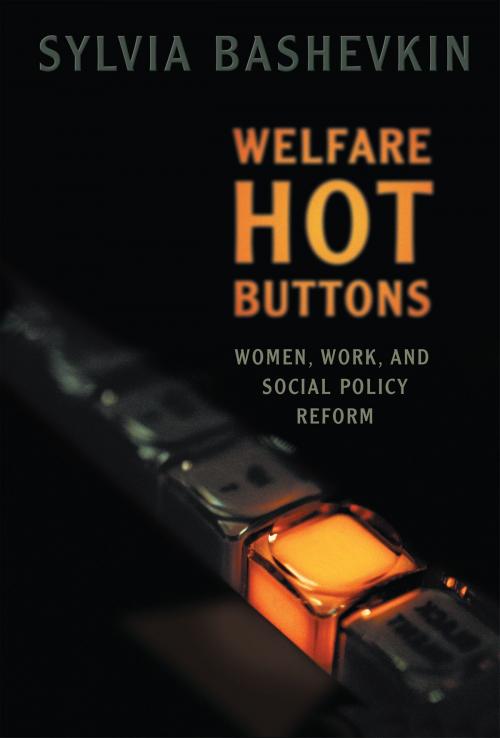Welfare Hot Buttons
Women, Work, and Social Policy Reform
Nonfiction, Social & Cultural Studies, Political Science, Politics, Social Services & Welfare, Government, Social Policy, Social Science, Gender Studies, Women&| Author: | Sylvia Bashevkin | ISBN: | 9781442655461 |
| Publisher: | University of Toronto Press, Scholarly Publishing Division | Publication: | September 28, 2002 |
| Imprint: | Language: | English |
| Author: | Sylvia Bashevkin |
| ISBN: | 9781442655461 |
| Publisher: | University of Toronto Press, Scholarly Publishing Division |
| Publication: | September 28, 2002 |
| Imprint: | |
| Language: | English |
Welfare Hot Buttons provides one of the first comparative assessments of contemporary social policy change in three Western countries: Canada, the United States, and Great Britain. Sylvia Bashevkin probes the fate of single mothers on social assistance during the period when three "third way" political executives were in office – Bill Clinton (US), Jean Chrétien (Canada), and Tony Blair (Great Britain) – and argues that despite seemingly progressive campaign rhetoric, the social assistance policy realities under each of these three leaders were in crucial respects more punitive and restrictive than those of their neo-conservative predecessors in the 1980s.
Bashevkin addresses even more contentious issues in her study, including the question of whether Anglo-American welfare states are being eclipsed by what she views as newly emergent duty states. In her comparative approach and in her substantive analysis, Bashevkin makes an original and critical contribution to the existing body of literature on social policy.
Welfare Hot Buttons provides one of the first comparative assessments of contemporary social policy change in three Western countries: Canada, the United States, and Great Britain. Sylvia Bashevkin probes the fate of single mothers on social assistance during the period when three "third way" political executives were in office – Bill Clinton (US), Jean Chrétien (Canada), and Tony Blair (Great Britain) – and argues that despite seemingly progressive campaign rhetoric, the social assistance policy realities under each of these three leaders were in crucial respects more punitive and restrictive than those of their neo-conservative predecessors in the 1980s.
Bashevkin addresses even more contentious issues in her study, including the question of whether Anglo-American welfare states are being eclipsed by what she views as newly emergent duty states. In her comparative approach and in her substantive analysis, Bashevkin makes an original and critical contribution to the existing body of literature on social policy.















